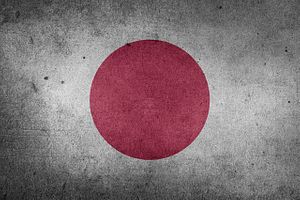One of the main candidates to be Japan’s next prime minister said Wednesday the country needs a new type of capitalism to address income and social gaps caused by the pandemic. Another, a protege of former leader Abe Shinzo, promised a stronger Japan that can cope with enemy attacks, natural disasters, and pandemics.
Former Foreign Minister Kishida Fumio was the first to announce his candidacy to lead the governing Liberal Democratic Party and succeed outgoing Prime Minister Suga Yoshihide. Whoever wins the September 29 party vote is almost certain to be the next government leader.
Kishida, who announced his candidacy last week, focused Wednesday on his economic policy, which he described as a shift from the neo-liberalism and deregulation begun by reformist former leader Koizumi Junichiro in the early 2000s that Japan has since adopted.
While deregulation and structural reforms have strengthened Japan’s economy and promoted growth, they also “created a gap between the rich and the poor, and those who possess and others who don’t,” Kishida said. The coronavirus pandemic has worsened the disparity, with tourism industry workers, contract workers and women among the worst hit, he said.
“We have to turn around the economy in this situation. If we just do the same thing, the gaps will only grow,” he said.
Kishida also proposed an economic recovery package and a university fund to promote vaccine development, biomedicine, and other cutting-edge science. He said he will promote clean energy technology to turn climate change measures into growth as Japan aims to achieve carbon neutrality by 2050.
Current Prime Minister Suga, whose popularity plummeted over his government’s handling of the pandemic, has announced he will not run in the LDP race, giving the party a fresh leader ahead of a general election that must be held by late November.
The new party leader is virtually guaranteed to become prime minister because of the parliamentary majority held by the party and its coalition partner.
Another possible candidate, Kono Taro, the Cabinet minister in charge of vaccinations and a favorite in media surveys, is still preparing a formal announcement. Kono formerly served as both foreign minister and defense minister under Abe.
Conservative former Internal Affairs Minister Takaichi Sanae also announced her entry into the race on Wednesday. She is seeking to become Japan’s first female leader, though she has ranked low in media popularity surveys.
Takaichi shares former Prime Minister Abe’s revisionist views on wartime history and hawkish stance on national security. Abe is supporting her bid, but it is unclear whether his faction will vote for Takaichi given her unpopularity with the public.
“I’m determined to protect Japan and open the future,” Takaichi said. She pledged to protect the lives and property of the people and “the sovereignty and the honor of our nation.”
That includes working to strengthen Japan’s response to cyberattacks, pandemics, and security threats, she said.
Takaichi supports traditional gender roles and paternalistic family values, following the example of the imperial family, which only allows male-line succession. She pledged to continue that policy as the foundation of “imperial authority and legitimacy.”
She also opposes changes to the family registration law that would allow married couples to keep separate surnames.
A member of the party’s most conservative wing, she often visits Yasukuni Shrine, a memorial to Japan’s war dead. Such visits by Japanese leaders infuriate former wartime foes such as China and South Korea.
“As a Japanese citizen I regularly pay respect to the people who sacrificed their lives for the country and that is based only on my freedom of religion,” Takaichi said. “I find it unfortunate to be criticized for it.”

































